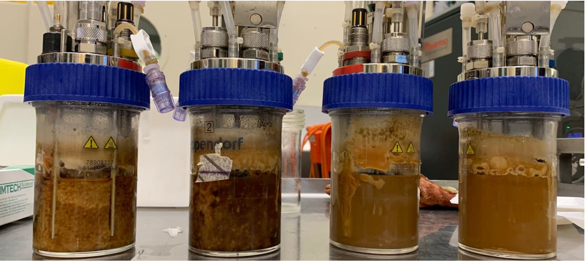Case Study: Razbio and University College London Academics Test Scale-Up Potential of Fungal BioPesticide
Introduction
At Razbio, we aim to deliver natural and safe solutions for agricultural crop production by preventing human, animal, and plant diseases. We are currently developing cost-effective technologies for the commercial scale production of microbial bio-pesticides and bio-fertilizers to reduce the use of chemical fertilizers. In collaboration with University College London (UCL), we embarked upon a project to validate and scale up a fungal bio-pesticide production process with funding and support from the AgRIA program.
Project Background
The project, led by Razbio’s Founder & CEO, Dr. Syed Farooq Shah, aimed to test the feasibility of scaling up the production and growing technique of a fungal bio-pesticide developed by the company. The bio-pesticide, Metarhizium spp, is an environmentally friendly biocontrol agent for insect pests. The traditional production method was labour-intensive and expensive, but our innovative process reduced labour and time requirements by 80%.
Collaboration and Methodology
During the project, academic staff at UCL trialled Razbio’s method using specialist technology and fermenters. The interdisciplinary work involved understanding Razbio’s fungal growth culture and requirements. Despite initial challenges due to limited access to laboratory facilities caused by the Covid-19 pandemic, the project progressed with a focus on testing and validation, which proved crucial for product development.
Key Findings and Outcomes
The project successfully validated Razbio’s techniques and demonstrated the feasibility of launching the product commercially. By working with 20-liter fermenters, the team optimized the conditions for production at this scale and laid the groundwork for upscaling to 100 liters or 1,000 liters. The collaboration also strengthened our connections with UCL academic staff in various fields.
Dr. Shah noted the importance of continued access to advanced facilities for further research. As such, we plan to invest £500,000 in follow-on research and development, focusing on shelf-life improvement and optimization tests. This ongoing collaboration is expected to enhance the competitiveness of our fungal products by reducing production costs and improving product quality.

